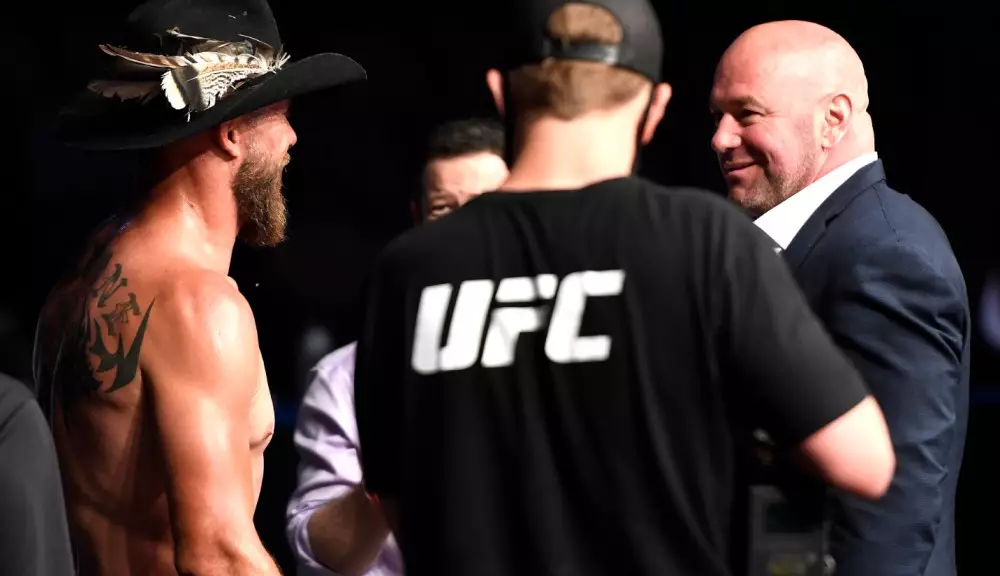In the dynamic world of mixed martial arts (MMA), the topic of retirement often elicits impassioned debates among fans, commentators, and fighters alike. The recent announcement by UFC veteran Donald “Cowboy” Cerrone regarding his desire to compete two more times in the Octagon raises legitimate concerns about the motivations behind such decisions. With an impressive career spanning decades and an accumulation of 50 fights under the Zuffa umbrella, Cerrone’s aspirations seem less about sport and more about personal accolades and financial gain.
UFC President Dana White’s reaction to Cerrone’s return underscores the precarious balance between a promoter’s eagerness for exciting bouts and the well-being of his athletes. White openly expressed his dismay at Cerrone’s decision, suggesting that the former champion’s retirement should have marked the end of his combat career. In the world of sports, especially in high-stakes environments like the UFC, the pressure can often lead fighters to overlook their own well-being in pursuit of glory or financial incentives. For White, Cerrone’s legacy as a fighter is notable; however, he believes that there is little left for Cerrone to achieve in the sport that would justify the risks involved.
The allure of the arena is potent, and it can trap even the most seasoned fighters. Cerrone’s love for the sport, the crowd, and the adrenaline rush is palpable. For many fighters, including Cerrone, leaving the sport can be akin to severing a crucial part of their identity. It’s not merely about physical combat; it encapsulates camaraderie, competition, and the euphoric highs of a cheering crowd. This struggle against the urge to return to the Octagon speaks volumes about the deep emotional ties fighters develop with their profession.
Cerrone’s popularity stems not only from his skills as a fighter but also from his warrior spirit. His fights have historically resonated with fans who appreciate grit and resilience. White points out that the audience’s explosive reaction whenever ‘Cowboy’ is featured during events illustrates his iconic status within the sport. As Cerrone prepares for a potential return, there’s an important conversation regarding how he could leverage his fame into roles beyond active competition—coaching, commentary, or even a possible venture into UFC promotion itself.
Ultimately, Cerrone’s return to fighting encapsulates a broader conversation about legacy versus longevity in the demanding world of MMA. While it’s tempting for athletes to chase the thrill of competition even after retirement, the question remains: Is it worth the potential toll on their health and safety? Cerrone has left an indelible mark on the sport; perhaps it is time for him to embrace a new chapter, sharing his wealth of experience without stepping back into the cage. As fans, supporting our athletes means advocating for their well-being, both inside and outside the Octagon.

